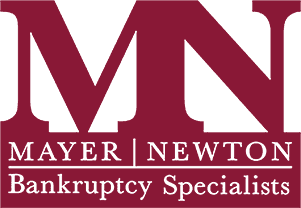Many Americans file for bankruptcy for a financial "fresh start." Unfortunately, you might not be saying goodbye to all of your debt. Though most consumer debt, such as credit card bills, are dischargeable, some debts like student loans are unaffected by bankruptcy—our Tennessee bankruptcy team details what debts are non-dischargeable by bankruptcy and exceptions to consider.
What Is Non-Dischargeable Debt?
Non-dischargeable debts are financial obligations that will not be eliminated by filing bankruptcy, per the U.S. Bankruptcy Code. Whether you file for Chapter 7 or Chapter 13, you remain responsible for the amounts due after completing the bankruptcy filing. In Chapter 7, when assets are liquidated, and debts are paid, you remain liable for any amount due considered non-dischargeable. Similarly with Chapter 13, If the non-dischargeable debts are not paid in full through the payment plan, you will be responsible for them regardless.
It is vital to understand what debts you will be left to pay after filing for bankruptcy to better formulate a financial strategy to clear them. Let's explore the most common non-dischargeable debts.
Alimony & Child Support
In Chapter 7 and Chapter 13, bankruptcies, child support, and alimony you owe to an ex-spouse or child are non-dischargeable. If your wages are being garnished due to past-due child support payments, bankruptcy will not stop wage garnishment. However, filing for Chapter 13 can help you get current on past due payments via the bankruptcy court's repayment plan.
Student Loan
In Chapter 7, student loans will not be discharged. Chapter 13 may delay student loan payments until a repayment plan is set in place, but this is temporary. Though rare, if proven in bankruptcy court that repayment of the student loans will cause substantial hardship, interest on the loan may be discharged but not the principal.
Taxes
Generally, tax debts cannot be discharged through a bankruptcy filing. However, as is often the situation in life, there are limited exceptions. Chapter 7 may allow the discharge of federal income taxes if you meet all the following conditions:
- They are income taxes;
- You have not filed a fraudulent tax return or willfully evaded taxes;
- You have filed a tax return for the debt at least two years before filing for bankruptcy;
- The tax debt was due at least three years before your bankruptcy filing; and
- The IRS assessed your income tax at least 240 days before the bankruptcy petition was filed.
Other Non-Dischargeable Debts
Here are some more noteworthy examples of non-dischargeable debts;
- Debts for personal injury or death caused by driving while intoxicated.
- Government penalties and fines.
- Fines and penalties for violating the law, including criminal restitution and traffic tickets.
- Debts not listed in bankruptcy documents.
Chapter 7 Vs. Chapter 13
Debts dischargeable in chapter 13, but not in chapter 7, include debts for;
- Willful and malicious injury to property.
- Debts incurred to pay non-dischargeable tax obligations.
- Debts arising from property settlements in divorce or separation proceedings.
These are limited exceptions to the rules and often call for specific strict requirements. Consulting with an experienced bankruptcy attorney about your particular debt will allow you to get a personalized recommendation for your situation.
How We Can Help
We understand how overwhelming filing for bankruptcy can be; you don't have to go at it alone. Here at The Law Offices Of Mayer & Newton we pride ourselves on our experience and drive to provide our clients with the guidance they need to reach financial freedom.
Talk to our qualified team of lawyers today by filling out a contact form online or giving us a call at We are here to help you make a clear decision and timeline.


